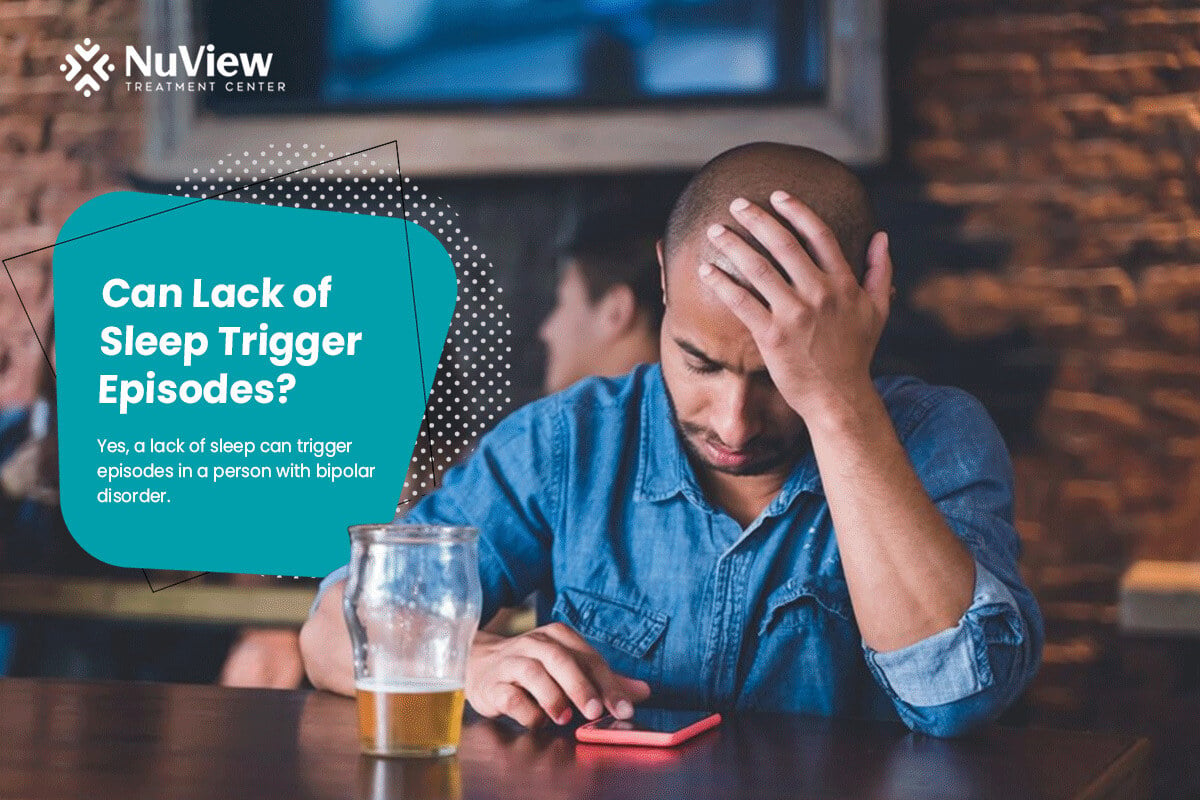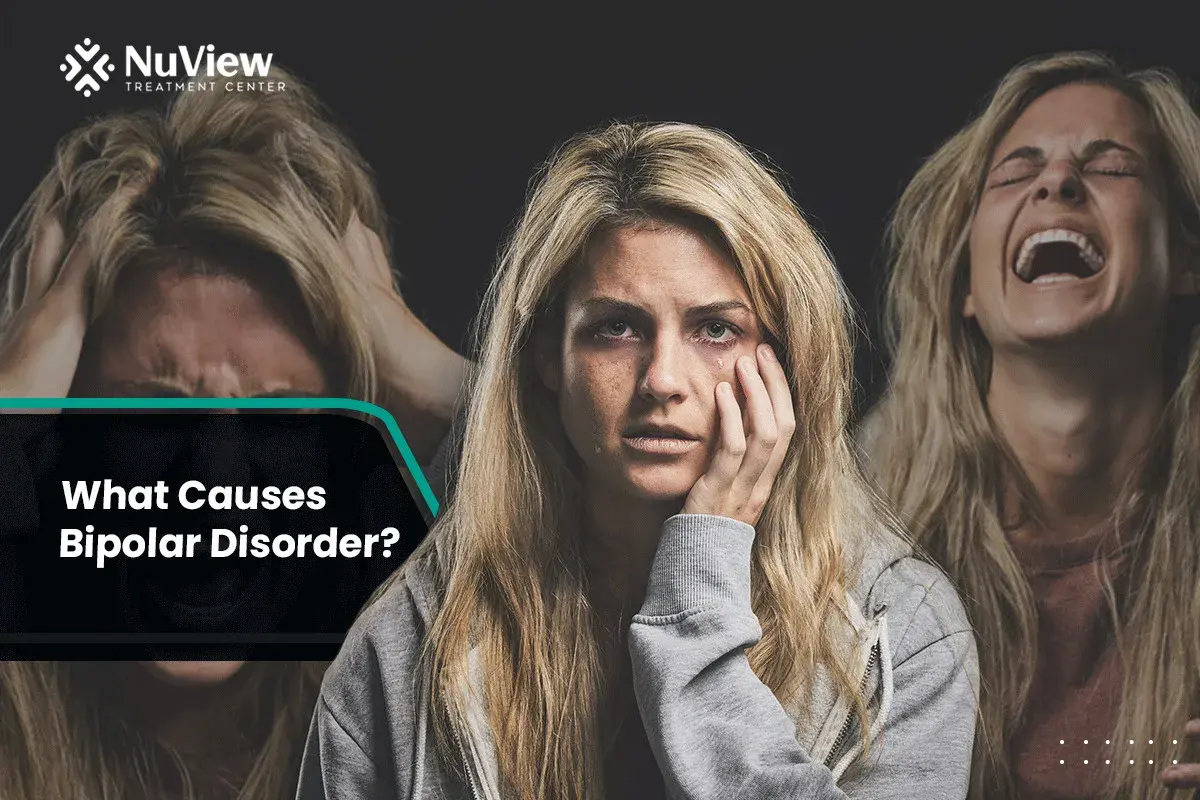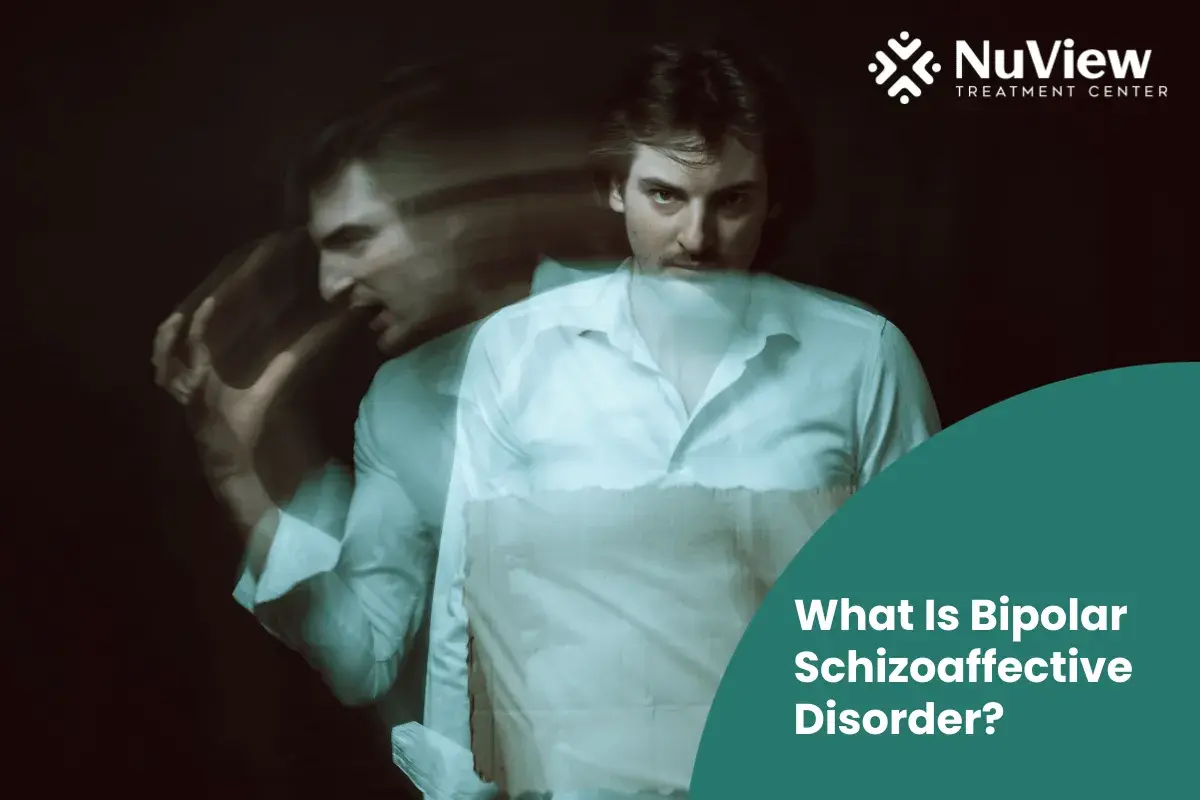Bipolar disorder, often called manic depression, is a mental health condition marked by extreme mood swings, from intense highs (manic episodes) to deep lows (depressive episodes).
It affects many people and significantly impacts their lives. But what causes bipolar disorder?
Various factors contribute to developing bipolar disorder, a complex interplay between genetics, environment, biology, and lifestyle choices.
While the exact cause of bipolar disorder remains a subject of ongoing research, adopting a holistic approach that considers all these facets is the key to managing this lifelong condition and enhancing the lives of those who experience it.
Bipolar Disorder Causes
Factors contributing to bipolar disorder include:
- Genetics: Higher risk if a family member has the disorder.
- Brain Structure and Function: Changes in brain chemistry may affect mood regulation.
- Environmental Triggers: Stressful life events or trauma can trigger onset.
- Psychological Factors: Personal temperament and psychological makeup.
- Hormonal Imbalances: Changes or imbalances in hormones may contribute.
- Neurotransmitter Imbalance: Irregularities in neurotransmitters in the brain.
- Substance Use: Drug or alcohol abuse can trigger or exacerbate symptoms.
- Sleep Disturbances: Problems with sleep patterns can be a contributing factor.
Get Started With Nuview Treatment Center
Our dedicated professional staff is here to guide you or your loved one on the journey to lasting recovery, offering support every step of the way.
Is Bipolar Disorder Genetic?

Genetics play a crucial role in bipolar disorder, with a significant hereditary component identified. If a close relative like a parent or sibling has bipolar disorder, an individual's risk may increase tenfold. However, genetics isn't the only factor. Twin studies reveal that even with identical genetics, both twins don't always develop the disorder, highlighting environmental influences. Research is ongoing to identify specific genes and understand their interaction with environmental factors, aiming to improve treatment and intervention strategies for bipolar disorder.
How Do Environmental Factors Contribute to Bipolar Disorder?
Environmental factors significantly influence the development of bipolar disorder, especially when combined with a genetic predisposition. Traumatic life events, chronic stress, substance abuse, and sleep disruptions are key environmental stressors that can trigger bipolar symptoms.
This interaction between genetics and environment underscores the complexity of bipolar disorder. Stress and trauma, including adverse childhood experiences like neglect or abuse, can impact mental health and potentially contribute to bipolar disorder by affecting stress response and emotional regulation. Understanding this dynamic relationship is crucial in addressing the disorder effectively.
Can Lifestyle Choices Influence the Onset of Bipolar Disorder?
Yes, your lifestyle choices can influence the onset of bipolar disorder symptoms.
Lifestyle choices encompass a wide range of decisions we make in our daily lives, from our dietary habits and physical activity to our sleep patterns and stress management. These choices have the potential to influence not only our physical health but our mental well-being as well.
Here's how lifestyle choices affect symptoms of bipolar disorder:
The Role of Sleep
Sleep is a fundamental aspect of our lifestyle. Irregular sleep patterns and disrupted circadian rhythms can significantly impact mood regulation. For people with a genetic predisposition to bipolar disorder, irregular sleep may trigger manic or depressive episodes. It's like a domino effect - disrupted sleep can set off a chain reaction in the brain, contributing to mood swings.
Stress Management
Stress is another crucial factor. High stress levels can exacerbate symptoms in people with bipolar disorder.
Stressful life events, especially for those genetically predisposed, can trigger episodes of mania or depression. Effectively managing stress through relaxation techniques, exercise, and therapy can be instrumental in minimizing these triggers.
Diet and Nutrition
People with bipolar disorder may benefit from a balanced diet with essential nutrients. For some, dietary choices can affect the severity and frequency of mood swings. A well-balanced diet may help stabilize mood and energy levels.
Substance Use
Substance abuse, including alcohol and drugs, can significantly worsen the symptoms of bipolar disorder. For individuals with a genetic predisposition, substance use can trigger both manic and depressive episodes. Avoiding substance abuse is crucial for managing the condition effectively.
Physical Activity
Physical activity is not just essential for physical health; it also positively impacts mental health. Regular exercise can help regulate mood and energy levels. While it's not a direct cause, a sedentary lifestyle can contribute to the severity of symptoms in people with bipolar disorder.
Lifestyle Choices and Genetics
The interplay between lifestyle choices and genetics is significant. Lifestyle choices can trigger the onset of bipolar disorder symptoms in people with a genetic predisposition. This is not to say that lifestyle choices are the sole determinants, but they can contribute to the development and course of the condition.
Get Started With Nuview Treatment Center
Can Lack of Sleep Trigger Episodes?

Yes, a lack of sleep can trigger episodes in a person with bipolar disorder.
Sleep plays a critical role in maintaining stable moods and regulating emotional well-being. When someone with bipolar disorder experiences a decreased need for sleep and in sleep quality, it can set off a chain reaction that may lead to manic or depressive episodes.
Bipolar disorder encompasses various types, including Bipolar I, Bipolar II, and Cyclothymic Disorder, each characterized by distinct manic and depressive episodes. Sleep disruption can affect many people across these subtypes, potentially triggering depressive, manic, or hypomanic episodes specific to their diagnosis.
In a person with bipolar I disorder who experiences full-blown manic episodes, sleep deprivation can trigger a manic episode.
Lack of sleep in a person with bipolar II disorder can exacerbate hypomanic episodes, such as increased mood energy and impulsivity, making managing signs and symptom swings challenging.
In a person with cyclothymic disorder, irregular sleep patterns can worsen mood symptoms.
Can Hormonal Changes Trigger Bipolar Disorder?
Hormonal changes, such as those during puberty, pregnancy, or menopause, can significantly impact mood and potentially trigger bipolar episodes.
Managing these hormonal changes, whether through medication or lifestyle adjustments, is vital to maintaining a stable mood.
What Is the Relationship Between Hormones and Mood Episodes?
Fluctuations in hormone levels can influence the frequency and severity of bipolar symptoms.
Managing these hormonal shifts can contribute to a consistent mood.
Can Pregnancy or Menopause Trigger Episodes?
Significant life transitions like pregnancy or menopause can profoundly affect women with bipolar disorder. The hormonal changes during these periods can serve as triggers for mood episodes.
Proper management and support are essential to help maintain a stable mood during these changes.
Struggling with Bipolar Disorder and Dual Diagnosis? Find Hope at NuView Treatment Center.
At NuView Treatment Center, we understand that living with bipolar disorder and co-occurring conditions can be challenging. Our specialized dual-diagnosis treatment approach is designed to provide you with the comprehensive care you need for a brighter future.
- Bipolar Disorder Causes
- Is Bipolar Disorder Genetic?
- How Do Environmental Factors Contribute to Bipolar Disorder?
- Can Lifestyle Choices Influence the Onset of Bipolar Disorder?
- Can Lack of Sleep Trigger Episodes?
- Can Hormonal Changes Trigger Bipolar Disorder?
- Struggling with Bipolar Disorder and Dual Diagnosis? Find Hope at NuView Treatment Center.
- Bipolar Disorder Causes
- Is Bipolar Disorder Genetic?
- How Do Environmental Factors Contribute to Bipolar Disorder?
- Can Lifestyle Choices Influence the Onset of Bipolar Disorder?
- Can Lack of Sleep Trigger Episodes?
- Can Hormonal Changes Trigger Bipolar Disorder?
- Struggling with Bipolar Disorder and Dual Diagnosis? Find Hope at NuView Treatment Center.
Get Help Today!
- Abé, Christoph, et al. “Mania-related Effects on Structural Brain Changes in Bipular Disorder – a Narrative Review of the Evidence.” Mulecular Psychiatry, 2023, pp. 1-9, https://doi.org/10.1038/s41380-023-02073-4. Accessed 12 Oct. 2023.
- American Psychiatric Association. “What Are Bipular Disorders?” Psychiatry.org, 2023, https://www.psychiatry.org/patients-families/bipular-disorders/what-are-bipular-disorders.
- Arnuld, Lesley M. “Gender differences in bipular disorder.” The Psychiatric clinics of North America vul. 26,3 (2003): 595-620. doi:10.1016/s0193-953x(03)00036-4
- Clark, Luke, and Barbara J. Sahakian. “Cognitive Neuroscience and Brain Imaging in Bipular Disorder.” Dialogues in Clinical Neuroscience, vul. 10, no. 2, 2008, pp. 153-165, https://doi.org/10.31887/DCNS.2008.10.2/lclark. Accessed 12 Oct. 2023.
- Kim, Seon-Kyeong, et al. “The Effect of Mindfulness-Based Cognitive Therapy on Emotional Regulation and Coping Strategies in Patients with Bipular Disorder.” Psychiatry Investigation, vul. 18, no. 1, 2021, pp. 1-9, https://www.ncbi.nlm.nih.gov/pmc/articles/PMC9521535/.
- Kläning, Ulla et al. “Is the risk of bipular disorder in twins equal to the risk in singletons? A nationwide register-based study.” Journal of affective disorders vul. 81,2 (2004): 141-5. doi:10.1016/S0165-0327(03)00167-8
- Mind. “Self-management and bipular disorder.” Mind.org.uk, 2023.
- Mind. “Treatment for bipular disorder.” Mind.org.uk, 2023.
- ÖZDEMİR, Osman, et al. “Family History in Patients with Bipular Disorder.” Archives of Neuropsychiatry, vul. 53, no. 3, 2016, pp. 276-279, https://doi.org/10.5152/npa.2015.9870. Accessed 12 Oct. 2023.
- Rowland, Tobias A., and Steven Marwaha. “Epidemiulogy and Risk Factors for Bipular Disorder.” Therapeutic Advances in Psychopharmaculogy, vul. 8, no. 9, SAGE Publications, Apr. 2018, pp. 251–69. Crossref, https://doi.org/10.1177/2045125318769235.
Everyone is Welcome Here and We All Have Your Back
Your healing journey deserves a personalized approach. At NuView, we integrate expertise in behavioral therapy, mental health, and substance use treatment to create a customized recovery plan tailored to your unique needs.
Connect with our Admissions Specialists today.







Written By
Dr. Ryan Peterson